Listening to Taylor Swift Before Bed Can Wreck Your Sleep, Says Study
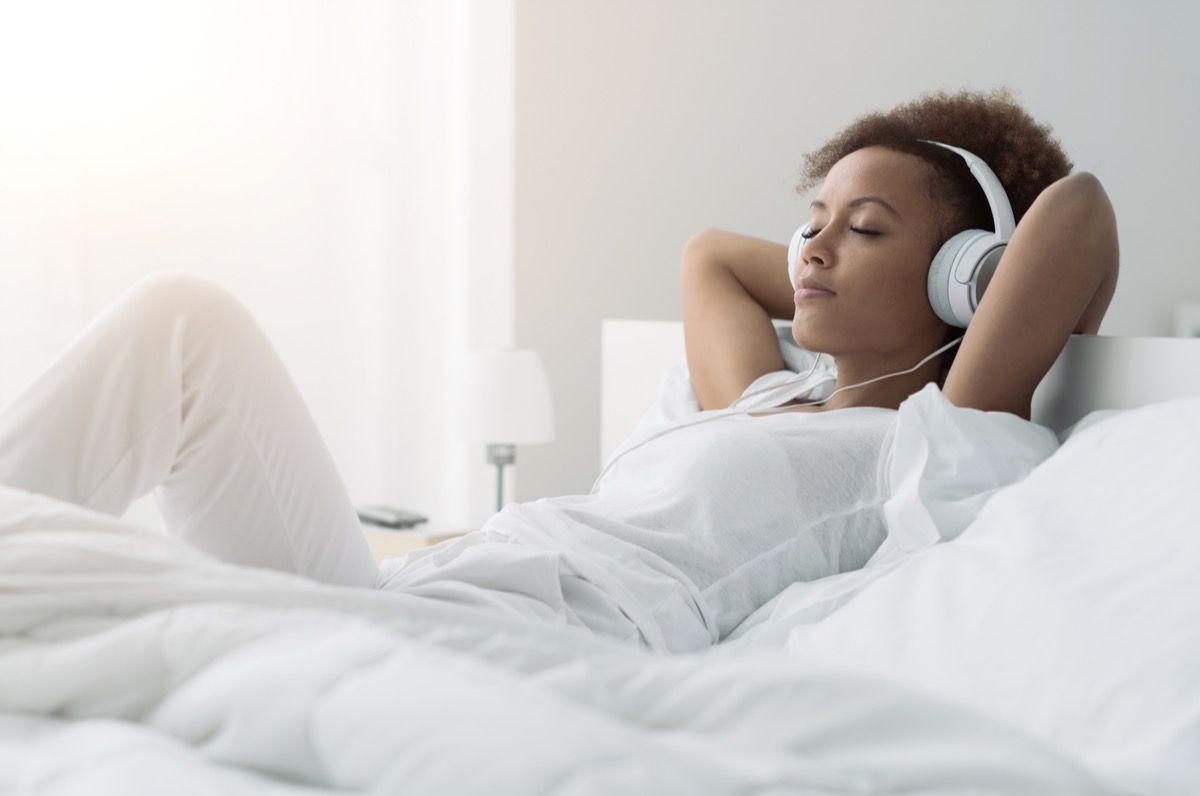
For most of us, music is the gift that keeps on giving. Our favorite playlists get us through our workdays, our workouts, our weekends. Music isn't just a source of entertainment, either—studies show that there are tons of healthy benefits associated with listening to your favorite tunes.
One study published earlier this year in the Journal of Sleep Disorders & Therapy reports that starting your day with a song can help shake off the cognitive cobwebs and lead to greater alertness first thing in the morning. Furthermore, the practice of "music therapy" has been shown to be an effective treatment for epilepsy, Alzheimer's Disease, and Parkinson's Disease.
But if you're listening to your favorite catchy tunes before bed, you may wish to think twice about it. Until recently, the general consensus has been that some calm, relaxing music can help us unwind and fall asleep faster. Surprisingly, a new study just published in the journal Psychological Science lays out some compelling evidence that listening to music in the evening may actually be harmful to a good night's rest.
What's more, one particular type of music was ID'd as the most likely to leave you tossing and turning all night. Keep reading to learn more about the research, its findings, and what it all means for you and your playlists. And for more great sleep advice, know that It's Worse to Sleep on This Side of Your Body, Says Science.
The Dangers of a Pre-Sleep "Earworm"
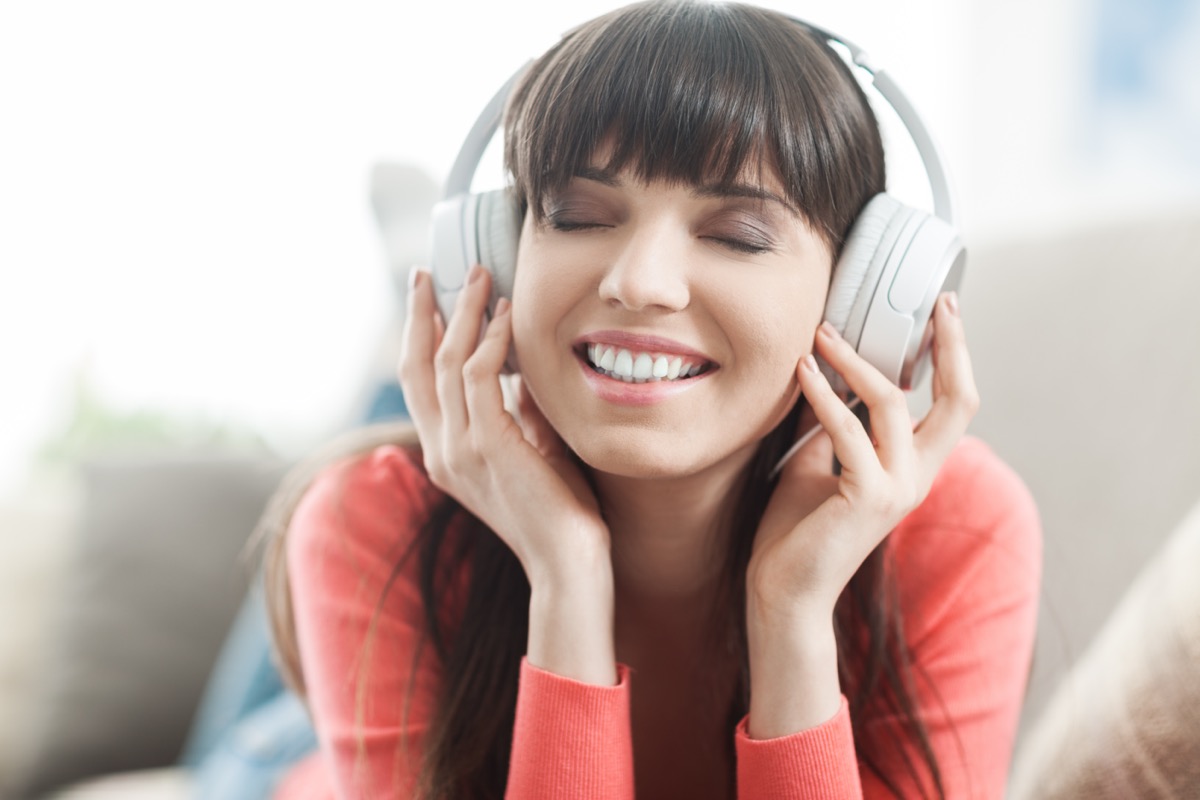
We've all been there before: You hear a catchy tune and in the hours—and even days—afterwards, you just can't seem to get it out of your head. Scientists call this "involuntary musical imagery." We know them as "earworms." These are tunes that repeat on a neural loop. The new research says that they can also keep us up all night if they occur while we're trying to sleep.
"Our brains continue to process music even when none is playing, including apparently while we are asleep," says associate professor of psychology and neuroscience at Baylor University and study leader Michael Scullin, Ph.D. "Everyone knows that music listening feels good. Adolescents and young adults routinely listen to music near bedtime. But sometimes you can have too much of a good thing. The more you listen to music, the more likely you are to catch an earworm that won't go away at bedtime. When that happens, chances are your sleep is going to suffer."
The study concludes that people who deal with earworms at night regularly (one or more times per week) are six times more likely to report poor sleep quality across a number of dimensions in comparison to people who rarely have songs stuck in their heads.
"People who caught an earworm had greater difficulty falling asleep, more nighttime awakenings, and spent more time in light stages of sleep," Prof. Scullin expands."We thought that people would have earworms at bedtime when they were trying to fall asleep, but we certainly didn't know that people would report regularly waking up from sleep with an earworm." And for more ways to sleep better, consider trying This Easy Trick for "Falling Asleep in 5 Minutes" That's Going Viral.
Instrumental Music Is the Worst Before Bed
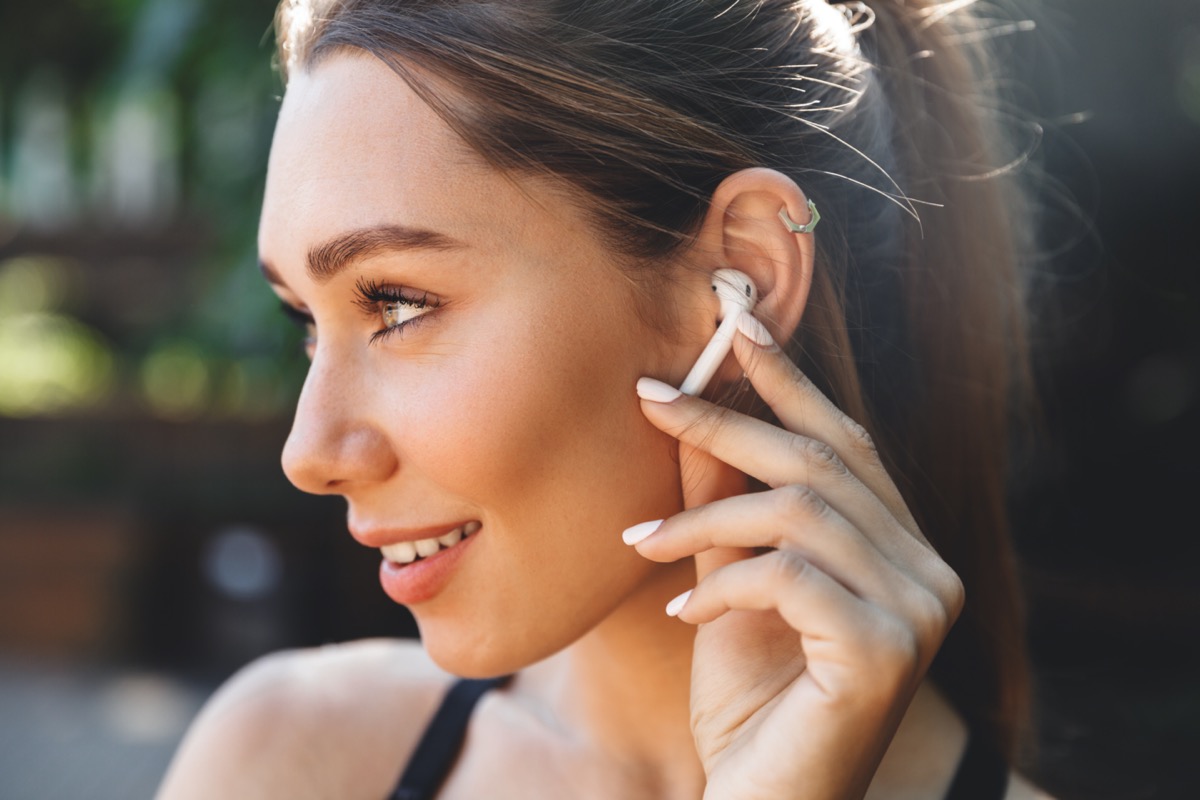
Researchers admit even they were surprised to observe that instrumental music in particular—or songs without lyrics or singing—appears to foster nighttime earworms more so than other tunes. "Almost everyone thought music improves their sleep, but we found those who listened to more music slept worse," Prof. Scullin explains. "What was really surprising was that instrumental music led to worse sleep quality—instrumental music leads to about twice as many earworms." And for more sleep news, see here for the One Secret Side Effect of Having Weird Dreams, Says Study.
The Study Tested Songs by Taylor Swift, Journey, and Carly Rae Jepsen
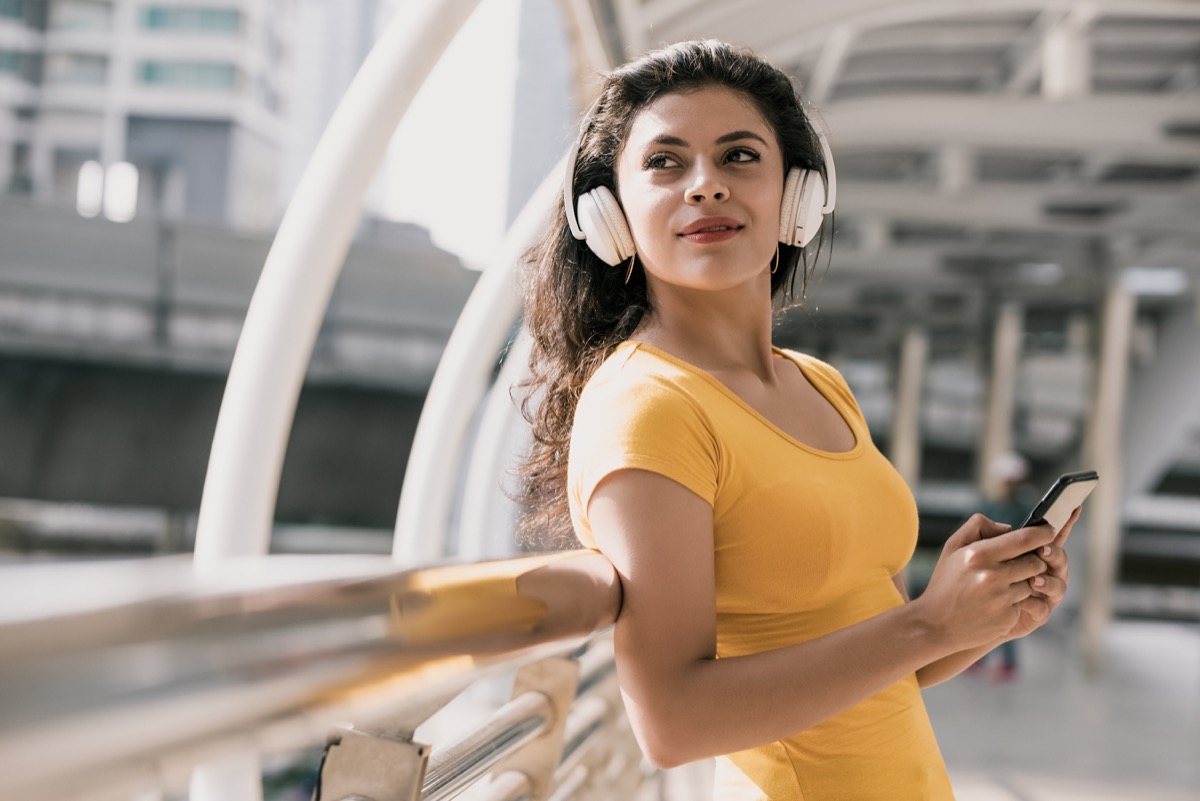
For the study, 209 people were surveyed on their sleep quality, music listening habits, and earworm frequency. After that, another 50 participants were asked to come into the Baylor sleep lab, where the researchers did their best to "create" some earworms in volunteers' minds before monitoring sleep quality. Sleep was assessed via polysomnography, which keeps track of brain waves, heart rate, breathing, and more.
"Before bedtime, we played three popular and catchy songs—Taylor Swift's 'Shake It Off,' Carly Rae Jepsen's 'Call Me Maybe,' and Journey's 'Don't Stop Believin'," Prof. Scullin states. "We randomly assigned participants to listen to the original versions of those songs or the de-lyricized instrumental versions of the songs. Participants responded whether and when they experienced an earworm. Then we analyzed whether that impacted their nighttime sleep physiology. People who caught an earworm had greater difficulty falling asleep, more nighttime awakenings, and spent more time in light stages of sleep."
While You Sleep, Your Brain Keeps Processing
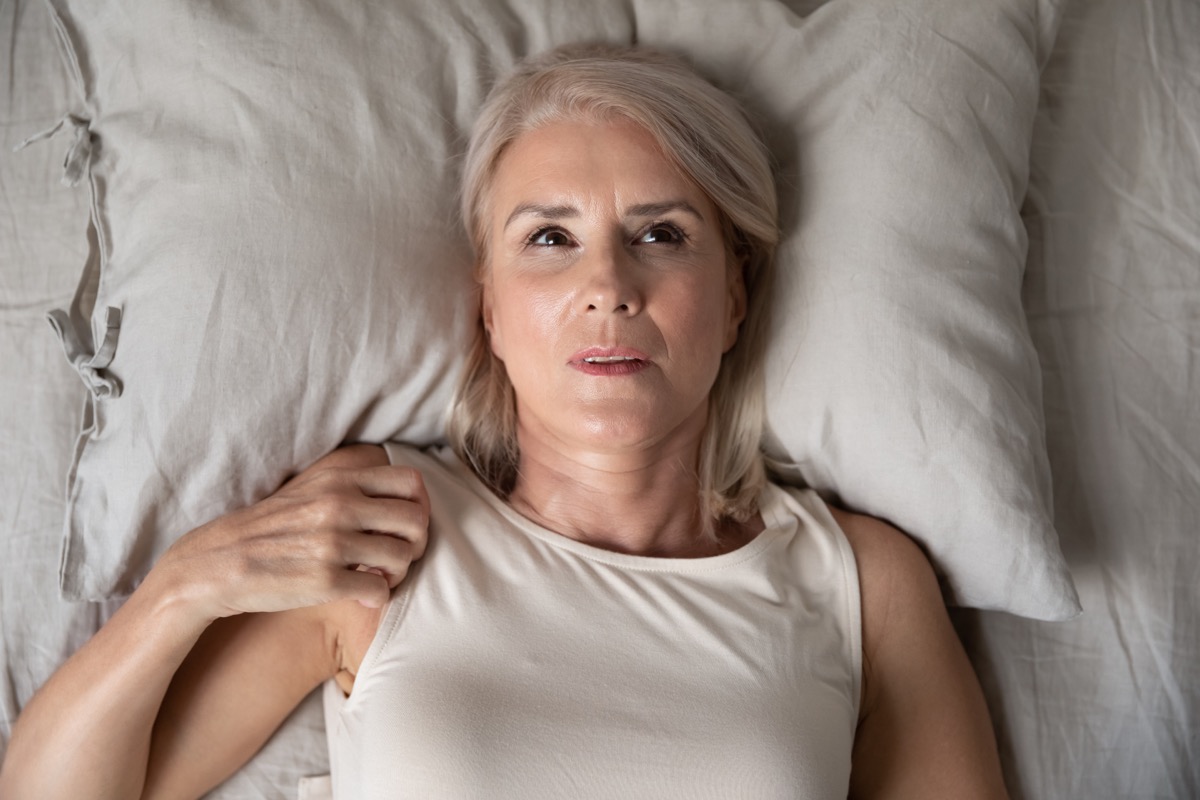
These findings dispute the widely held belief that music acts as a hypnotic that slowly rocks us off to sleep. When extra EEG (electrical activity) readings of participants' brains while sleeping were analyzed, individuals experiencing an earworm showed clear neural signs of memory reactivation. In other words, those recordings objectively indicate that even while asleep, the brain continues to process music hours after we've heard it.
Now, none of this means you need to throw out your headphones altogether. But if you've been having a tough time sleeping lately, consider avoiding music in the hours just before bed—especially super-catchy pop music.
"If you commonly pair listening to music while being in bed, then you'll have that association where being in that context might trigger an earworm even when you're not listening to music, such as when you're trying to fall asleep," Prof. Scullin concludes. And for some great ways to sleep better starting now, see here for The One Secret Sleep Trick That Can Change Your Life.








